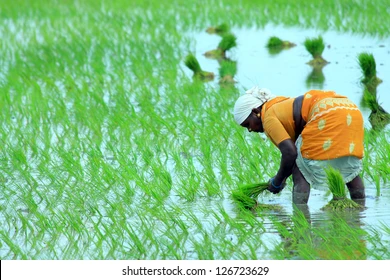Bayer pledges to help tackle global water crisis with new water strategy
For shaping a water-resilient agriculture system with key contribution in rice.
Bayer is launching its new water strategy at the UN 2023 Water Conference in New York. The company is making water an integral part of its business decisions, investments and selection of suppliers. Bayer’s water strategy reflects its position as a key player in the fields of health and agriculture and aims to have an impact that goes beyond the company’s own business.
“The world is facing a severe water crisis affecting ecosystems, food security and human health,” explains Bayer CEO Werner Baumann. “As a leader in health and nutrition we have an intrinsic motivation to address the water crisis and make a valuable contribution. With our global footprint and strong supplier engagements, Bayer will create value and encourage sector-wide action. Our ambition is to play a leading role in promoting corporate water stewardship and rallying other businesses to take action to protect the world’s water resources.”
Bayer’s commitments go beyond the company’s own operations and are reflecting its ambition to generate impact. The activities will encompass the entire value chain, from Bayer’s own operations to the farmers Bayer serves. Key elements of the water strategy are:
Resilient agriculture: On average, 70 per cent of global freshwater withdrawals are in agriculture. Bayer commits to driving positive change in water productivity in water scarce regional cropping systems, starting with rice, which is responsible for up to 43 per cent of the world’s irrigation water withdrawals. The company is committed to improving water use per kilogram of crop by 25 per cent by 2030, by transforming rice-cropping systems for smallholder customers in the relevant regions where Bayer operates. In addition, Bayer’s existing commitment of reducing the environmental impact of its crop protection portfolio by 30 per cent by 2030 also contributes to water quality.
Business and investment: Bayer is developing a concept to integrate water quality and quantity into business decisions and processes that will be rolled out from 2024 onwards. The company will develop a methodology to place a value on water and incorporate it into investment processes. Already in 2021, water and wastewater matters represented approx. 10 per cent of Bayer’s total CapEx projects.
Suppliers and growers: Bayer evaluates the sustainability performance of all key suppliers and of selected high-sustainability-risk suppliers using a sustainability risk classification that includes water. As an important step forward, Bayer has launched its new Supplier Code of Conduct, with dedicated items to address water and wastewater. At the same time the company will continue to drive improvements in water-use efficiency with growers across seed production.
“Until now, the topic of water has been overlooked in the climate debate despite the many interlinkages, but with the UN 2023 Water Conference it is gaining momentum. There are new opportunities to take the right sustainable actions, and we must seize these opportunities now. This is why we make water an integral part of our business and investment decisions across the entire value chain. With these decisions, we will contribute to climate resilience and to more sustainable water usage,” says Cristina Alonso Alija, Head of Sustainability, Safety, Health & Environment, and responsible for the water strategy at Bayer.
For shaping a water-resilient agriculture system with

